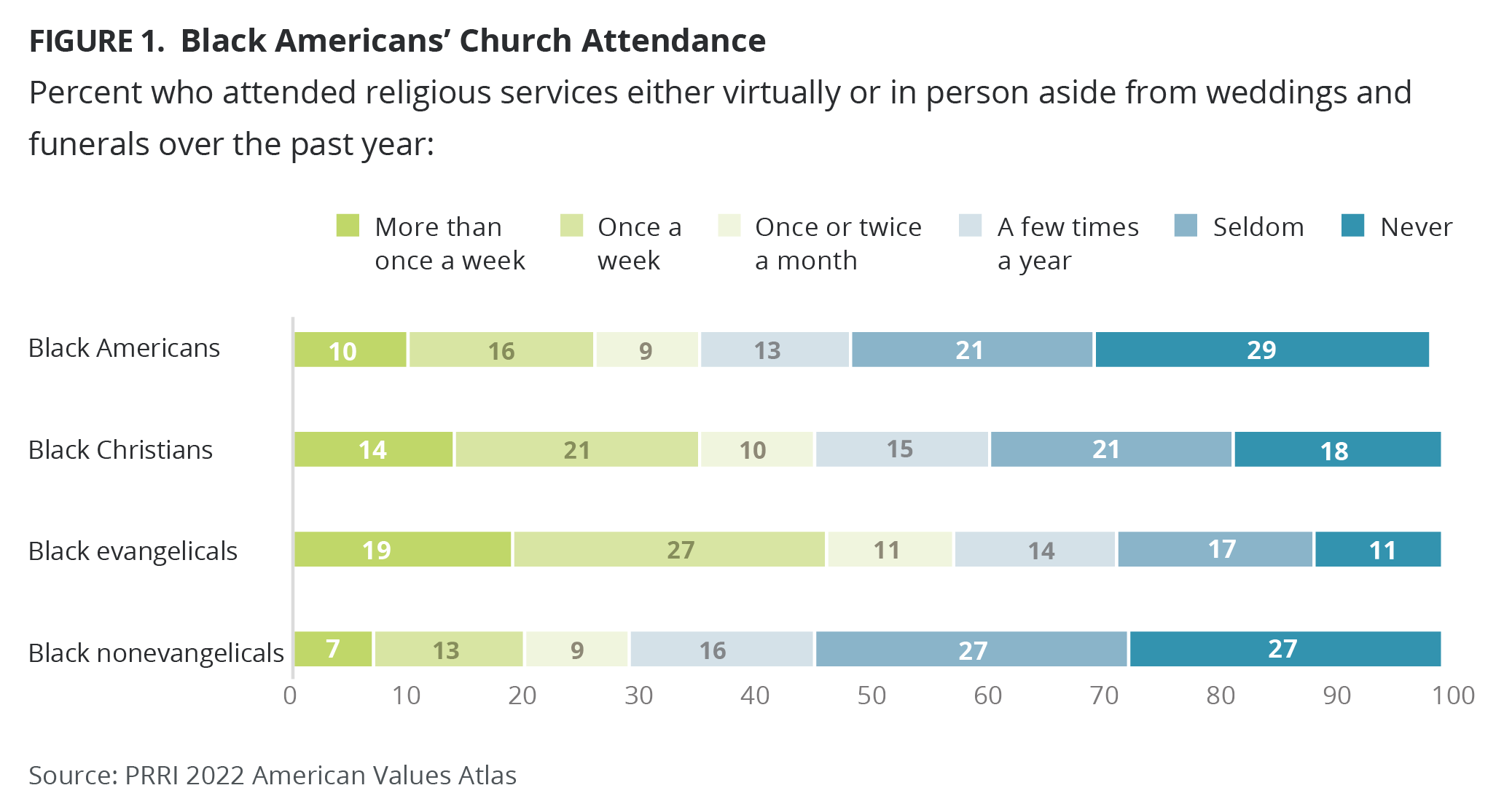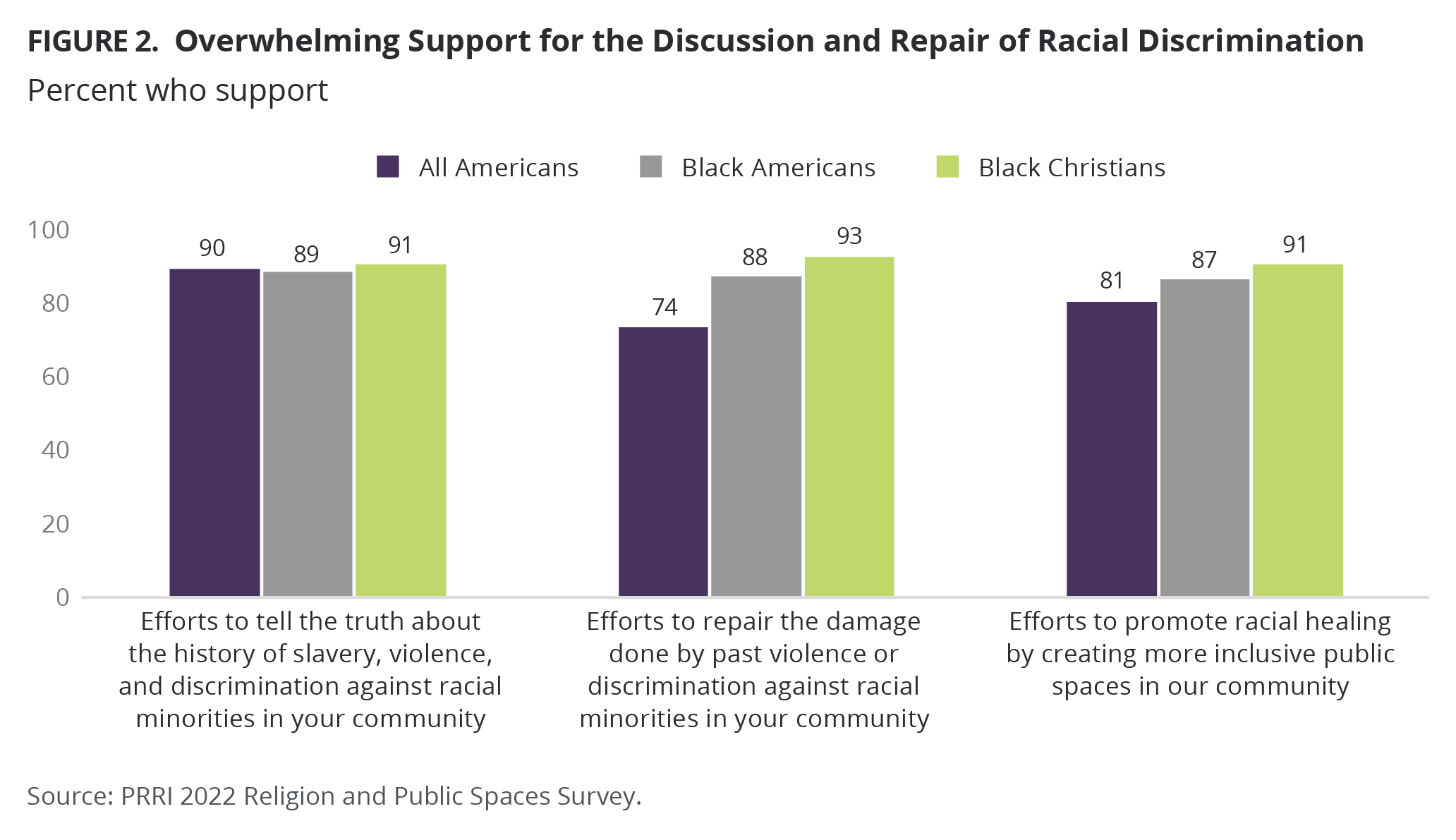February was officially named Black History Month in 1976, but the tradition of honoring the history, progress, and achievements of Black Americans in February goes back to 1926, when the celebration was only a week long. The month of February was chosen because Black Americans already celebrated the birthdays of two prominent figures born that month: Abraham Lincoln, who was born on Feb. 12, and Frederick Douglass, who was born on Feb. 14.[1]
For 2023, the theme of Black History Month is “Black Resistance.” It’s a theme that focuses on the individuals, movements, and organizations that have pushed back against the systematic oppression and discrimination the Black community has faced throughout American history. Faith-based organizations, and Black churches in particular, are among the institutions that have played a pivotal role in providing safe environments for the Black community and spaces to organize resistance plans. This spotlight explores the importance of Christian institutions in the lives of Black people.
Importance of Religion
Religion plays an important role in the lives of Black Americans. According to PRRI data from 2022, more than seven in ten Black Americans (71%) are Christian, a slight decrease from 79% in 2013. About one in five are religiously unaffiliated (22%), up from 16% in 2013, and the remaining 7% affiliate with non-Christian religions. Black Americans are notably more likely than Americans in general to say that religion is the most important thing in their lives (28% vs. 15%), and this percentage is notably higher among Black Christians (36%).
Among Black Christians, 41% identify as evangelical or born-again and 59% do not. Black evangelicals (46%) are more than twice as likely as nonevangelicals (21%) to say that religion is the most important thing in their life. The majority of black evangelicals (57%) say they attend church regularly, with 19% saying they go more than once a week, 27% saying they go once a week, and 11% reporting that they go once or twice a month. Meanwhile, only 14% of Black evangelicals say they attend church just a few times a year, 17% go seldom, and 11% say they never go. By contrast, the vast majority of Black nonevangelicals (70%) say they attend either a few times a year (16%), seldom (27%), or never (27%) — compared to about three in ten (29%)say they attend more than once a week (7%), once a week (13%), or once or twice a month (9%).

Today, nearly six in ten Black Americans (59%) identify as Democrats, while only three in ten identify as independents (25%) or Republicans (5%). Black Christians and Black evangelicals are slightly more likely to be Democrats (66% and 65%, respectively). About three in ten Black Americans (31%) say they are liberal, 43% say they are moderate, and 20% identify as conservative. Black Christians and Black evangelicals mirror these numbers closely, but Black evangelicals are slightly more likely to be conservative (26%).
Among religiously unaffiliated Black Americans, 40% are Democrats, 38% are independents, and 2% are Republicans. Members of this group are less likely to be politically conservative than Black Christians or Black Americans overall, with 14% reporting that they are conservative, 46% identifying as moderate, and 35% saying they are liberal.
Social Networks and Satisfaction
Community and religion also play a role in Black Americans’ level of satisfaction with their social connections. Compared with other racial groups, Black Americans are the most likely to be highly satisfied with their social connections (47%) and the least likely to be generally dissatisfied (10%). Among Black Americans, 59% say they are very satisfied with the number of close friends they have in their lives, compared with 49% of Hispanic Americans , 46% of white Americans, 38% of AAPI Americans, and 37% of multiracial Americans. Black Americans (46%) are also the racial group that is most likely to say they are very satisfied with how they kept connections throughout the COVID-19 pandemic. Black Americans (59%) and Hispanic Americans (59%) are the groups most likely to say they are very satisfied with the racial and ethnic diversity of their close friend groups, though nearly half of white Americans (48%) and multiracial Americans (47%) also record high levels of satisfaction. Also, Black Americans are the group most likely to say they are very satisfied with their neighborhood connections (33%), while about one in four white Americans (27%) and Hispanic Americans (26%) say the same.
Issues of Importance
In the 2022 midterm elections, the issues that most guided Black Americans’ votes included increasing costs of housing and everyday expenses (64%), racial inequality (62%), crime (57%), abortion (57%), and the health of the country’s democracy (55%). Half of Black Americans (50%) disagree with the statement “the next generation will be better off financially than your parents’ generation.”
An issue that the vast majority of Black Americans agree on is the importance of teaching Black history, fixing the damage caused by the country’s history of racism, and working to increase inclusivity in their communities. Around nine in ten Black Americans support efforts “ to tell the truth about the history of slavery, violence, and discrimination against racial minorities”; “to repair the damage done by past violence and discrimination against racial minorities”; and “to promote racial healing by creating more inclusive public spaces.” Black Christians are slightly more likely to support such efforts than Black Americans generally.

[1] The celebration began in February of 1926 and was originated by Dr. Carter G. Woodson, who also founded the Association for the Study of African American Life and History (ASALH) in 1915. Each year, ASALH establishes a theme for Black History Month to highlight “important developments that merit emphasis” in the Black community for the given year. https://asalh.org/black-history-themes/